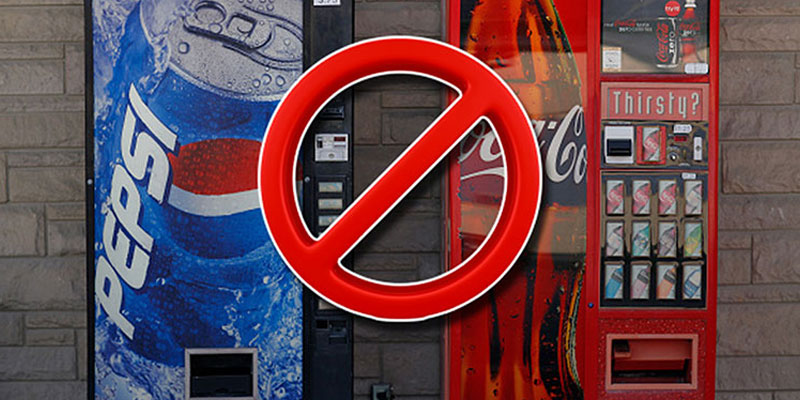March, 2, 2017

A ban on cola drinks made by multi-national beverage companies such as Pepsi Co and Coca-Cola came into effect in Tamil Nadu from Wednesday (01), signalling the rise of quick nationalism in India.
Determined to show its support towards Indian companies, the Federation of Tamil Nadu Traders Associations (FTNTA) and the Tamil Nadu Traders Associations Forum (TNTAF), the two largest associations in the state said that it has the support of over a million of retailers of the state.
A FTNTA spokesperson said foreign-made drinks are not good for health and added that the associations will promote Indian soft drinks and juices, and their manufacturing. They would also urge more retailers to push sales of Indian drinks over foreign drinks.
The associations accuse that the cola companies of drawing too much water from the rivers, which they said has impacted irrigation and farming in the state. The pumping of water, the associations said, has depleted water basins and has severely affected farmers during draught.
To put things in context, the gross domestic product (GDP) of Tamil Nadu is $250 billion, the second largest in the country, which has 21% of its contribution from agriculture.
The cola companies did not make any comment on the situation.
“Coca-Cola and PepsiCo India together provide direct employment to 2,000 families in Tamil Nadu and more than 5,000 families indirectly, through their extensive supply chain. They also play a critical role in improving the livelihood of over 2 lakh retailers, who earn more than Rs. 400 crores in income by selling products manufactured by the two companies. The companies also sustain the interests of thousands of Tamil farmers, by procuring agri-produce,” said Indian Beverages Association, in a statement, defending Coca-Cola and Pepsi.
“The logic is flawed because even Indian drinks would need water... It also becomes the battle between the small drinks-maker (Indian companies) and larger multi-nationals. However, any such movement should be started by consumers, and not by the traders,” said brand consultant Harish Bijoor.
Patanjali, by a multi-product company set up by yoga guru-turned-entrepreneur Ramdev has been towing the line of swadeshi for over three year. It talks of desi versus videshi, non-chemical and ayurvedic products, and even burning foreign products.
“There is a greater degree of jingoism in Patanjali, but this movement in Tamil Nadu can very well become a larger nationalistic movement,” said Bijoor.
Prime Minister Narendra Modi’s Make in India and Startup India have their own effect on swadeshi -- one talks of manufacturing in India and the other talks of building more companies out of India. During his election campaign, he talked about creating more jobs, and stopping brain drain.
Modi’s party BJP has its affiliate, the Swadeshi Jagran Manch, that supports India being built by Indians. In the past, the manch had even criticised Modi’s foreign direct investment (FDI) policy.
Video Story